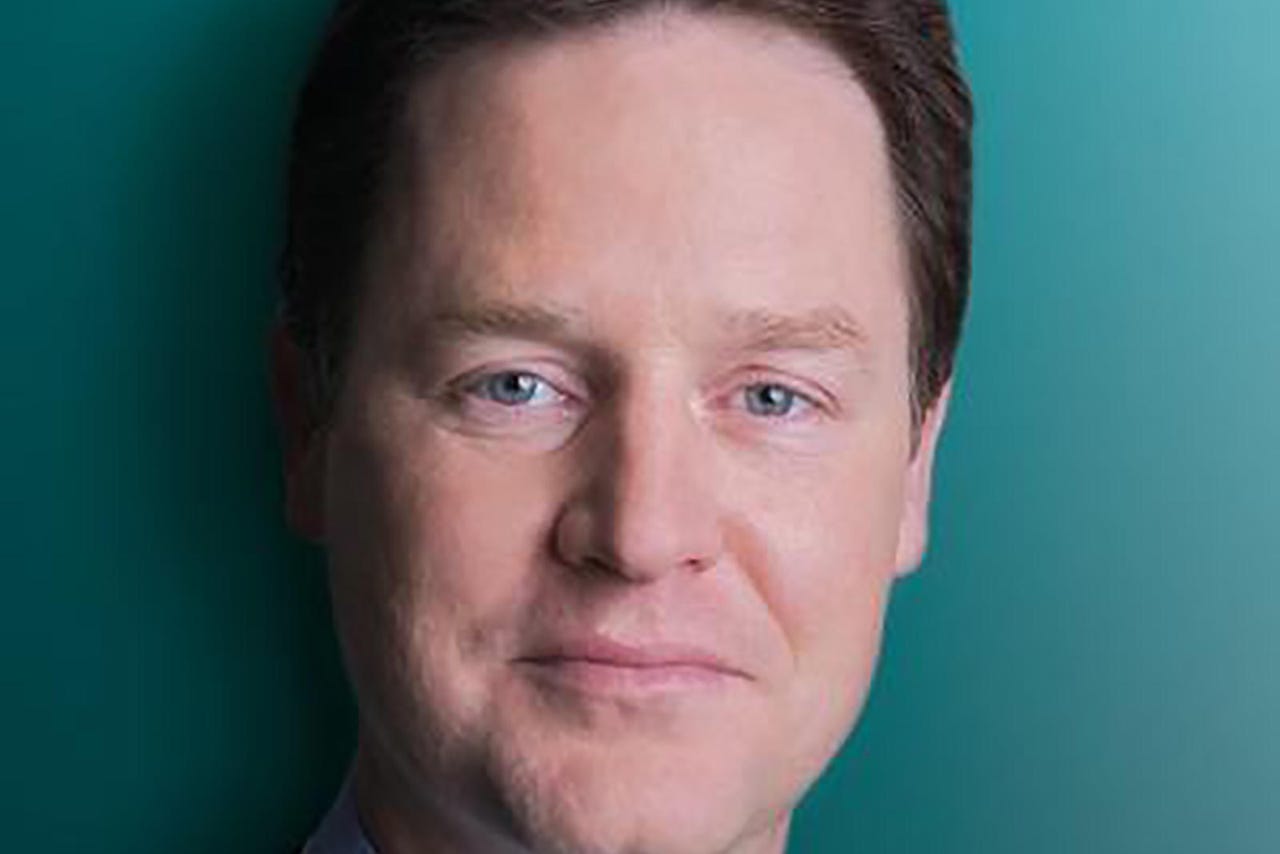Apple is an exclusive club, says Facebook executive

A little desperate?
Whenever I think of Facebook, I tend to regret it.
Apple
Rarely has the business world seen a company that so delights in its cynicism and so claims to have benevolent intentions toward the whole world.
Lately, though, Facebook seems a touch miffed that Apple CEO Tim Cook chooses to point out some of Facebook's tiny flaws. (And Google's.)
Its tendency to treat privacy as if it was cheap Christmas wrapping paper, for example.
Suddenly, Facebook and its suitably venal mob of lobbyists appear to have chosen to fight back.
Why, Facebook's newly-minted head of global affairs, Nick Clegg, spoke in Berlin on Monday and launched a splendidly twisted thought-bubble toward Cupertino.
As Business Insider reports, Clegg offered these deeply considered words: "Facebook is free -- it's for everyone. Some other big tech companies make their money by selling expensive hardware or subscription services, or in some cases both, to consumers in developed, wealthier economies. They are an exclusive club, available only to aspirant consumers with the means to buy high-value hardware and services."
Let us rejoice at Facebook's magnanimity. This is the company that tried to give developing countries free internet, as long as Facebook was the conduit to that internet.
Free Basics, it was called. Some preferred to term it digital colonialism.
That's the funny thing about the word free. It always comes with a manifest manacle. And it's one the likes of Facebook and Google have exploited to ungodly riches.
But wait, Clegg wasn't done suggesting that Apple -- oh, you know he was talking solely about Apple -- is something akin to the Conservative Party, with which Clegg's Liberal Democrats once naively formed a coalition.
When he was a British politician, rather than a head of global affairs, that is. (Terrible snobs, those Conservatives.)
In Berlin, Clegg observed: "There's no exclusivity at Facebook. No VIP access. No business class. Our services are as accessible to students in Guatemala, cattle farmers in the Midwest United States, office workers in Mumbai, tech startups in Nairobi, or taxi drivers in Berlin. More than two billion people use our platforms -- because they can."
Yes they can.
And they can have their data scraped and sold, their every movement logged and loaded onto Facebook's computers, their every thought, action, and breath offered to the highest bidder, so that Facebook can make more money out of advertising and maintain more power than any corporation has ever deserved.
Of course, Apple isn't a saintly concern. Its products are never cheap and its ethos can, at times, seem holier than thousands of other companies all put together.
I believe, though, that CEO Tim Cook maintains at least sufficient humanity to at least care what's happening to humanity.
He believes privacy is a moral issue. He wants it to become part of Apple's brand identity.
This contrasts rather starkly with Facebook's sudden and blatant embrace of (its version of) privacy, designed solely to prevent a government-induced breakup of its twisted entity.
You might think that after its embarrassment with Cambridge Analytica, the US elections, and a thousand other faux-pas, which induced the finest of insincere apologies from Facebook, the company could don sackcloth and ashes and disappear to a distant monastery for a little quiet contemplation.
Instead, it announces it's contemplating the launch of a cryptocurrency. Because, you know, trust us, it'll be great.
Clegg himself doesn't have the finest record when it comes to trustworthy promises. But, goodness, he was a politician, so expectations shouldn't have been great.
However, attempting to claim Apple is elitist -- a strategy Google CEO Sundar Pichai recently tested -- and therefore Facebook is somehow the populist people's savior confronts a painful truth.
No one has ever accused Apple of allowing an election to be illegally influenced by foreign powers.
